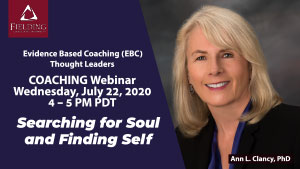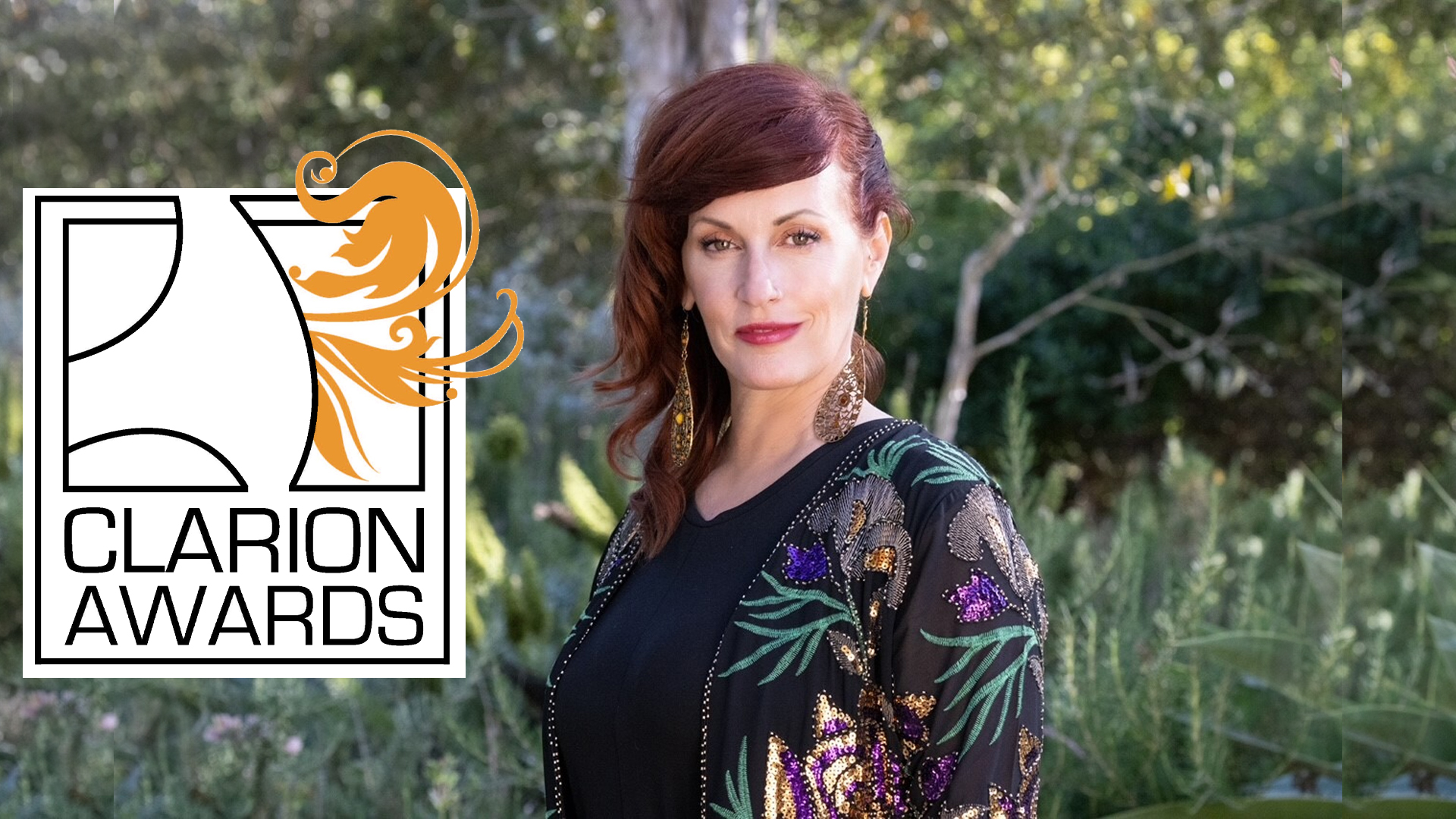EBC Blog: Searching for Soul and Finding Self
Guest Blogger: Ann L. Clancy, PhD.
 The Appreciative Coaching approach rests on a key premise: begin where the client is. However, practitioners can only begin where the client is by also discovering where they begin with their own thoughts, beliefs and experience. Early in our careers as coaches, we found a disconnect between what we were actually experiencing with our clients and some of the traditional theories and approaches to change, especially those focused on the problem-solving model and Newtonian mechanistic assumptions about human capacity.
The Appreciative Coaching approach rests on a key premise: begin where the client is. However, practitioners can only begin where the client is by also discovering where they begin with their own thoughts, beliefs and experience. Early in our careers as coaches, we found a disconnect between what we were actually experiencing with our clients and some of the traditional theories and approaches to change, especially those focused on the problem-solving model and Newtonian mechanistic assumptions about human capacity.
Knowing the practitioners’ role to be instruments of change, we began a search to reveal and understand our own foundational theories and existential beliefs. In this search, we explored generative, phenomenological and quantum approaches, reflected on our own lived experiences and personal evolution, and conducted evidence-based coaching research about what enables deep human change. We looked at how theory influences who coaches are, thereby influencing how they coach. In our search for the “soul” of coaching, we realized that many of the coaches we worked with in our training sessions were unaware of their own professional stance regarding the capacity for change. We determined to build a conceptual bridge from unconscious Newtonian beliefs to new generative scientific assumptions about self that matched our real-time experiences of clients as dynamic, energy-based beings in continual process.
We identified three main areas where beliefs about change differ dramatically: how one defines “self,” how one defines “life in motion,” and how one understands the “movement of meaning-making.” We identified the significant difference between a Newtonian-based concept of self and a quantum-based concept of self in coaching.
| Newtonian-based Coaching Concept of Self | Quantum-based Coaching Concept of Self |
| Self as discrete entity or object viewed objectively | Self as process indistinguishable from its relationships and environment |
| Self as neutral onlooker | Self as participating observer |
| Self as having content and issues (a problem story), which becomes a Newtonian “mass” or weight. Moving the mass is seen as logical and mechanical, but the more focus spent on moving “mass” in a determined direction only creates more resistance | Self as process which can be re-oriented by shifting client focus to a new story or solution, spending little time on client problem story and thereby reducing resistance |
| Self as coaching neutrally around the content of others | Self as coaching within the context and process of others |
| Self as coaching through observing and witnessing but not influencing or sharing responsibility for results | Self as coaching through co-creation, both individuals as participating observers of reality and co-sharing responsibility |
(Adapted from Cardon 2017a, 2017b, 2017c).
Cardon, A. (2017b). Quantum Coaching III: Synchronicity, fractals and systemic coaching. Paris: Metasysteme S.A.S. https://www.metasysteme-coaching.eu/english/quantum-coaching-iii-synchronicity-fractals-and-systemic-coaching/
Evidence Based Coaching (EBC) Thought Leaders Webinar: Searching for Soul and Finding Self
Recorded on Wednesday, July 22, 2020
Speaker: Ann L. Clancy, PhD.
As OD consultants and then coaches, we found a disconnect between our actual experiences with clients and some of the traditional change theories we were taught, especially those based on problem-solving and Newtonian mechanistic assumptions. Educated at Fielding we embraced the notion that we are the instrument for change and that we begin where the client is. We realized that as practitioners we needed to discover where we begin with our own existential beliefs and what professional stance we wanted to adopt. We were drawn toward process, generative and energy-based approaches to understanding change that included our own lived experiences and personal evolution. We saw how theory influences who coaches are, thereby influencing how they coach. In searching for the “soul” of coaching, we found a conceptual bridge from unconscious Newtonian beliefs to new generative assumptions about “self” that match our real-time experiences of clients as dynamic, energy-based beings in process.
Bio of Ann L. Clancy, PhD.
Ann L. Clancy, PhD specializes in executive coaching, strategic planning, organizational change, and leadership and team development. Ann has 30+ years of experience in working with organizations, teams and individuals to create positive change. She is a researcher and co-author of Appreciative Coaching: A Positive Process for Change (2007) and Pivoting: A Coach’s Guide to Igniting Substantial Change (2017), both of which present a researched, evidence-based approach to coaching. She is an international speaker and trainer in Appreciative Coaching and Igniting Substantial Change working in countries such as Thailand, Japan, Nepal, Brazil, Switzerland, Turkey, the Netherlands, Norway, and South Africa.
For more on Fielding’s EBC Coach Training Program, see http://coach.fielding.edu
#coach #ebc #fielding #coachtraining #coaching #evidencebasedcoaching
Join Over 7,500 Fielding Alumni Located Around The World!
Change the world. Start with yours.™






Get Social